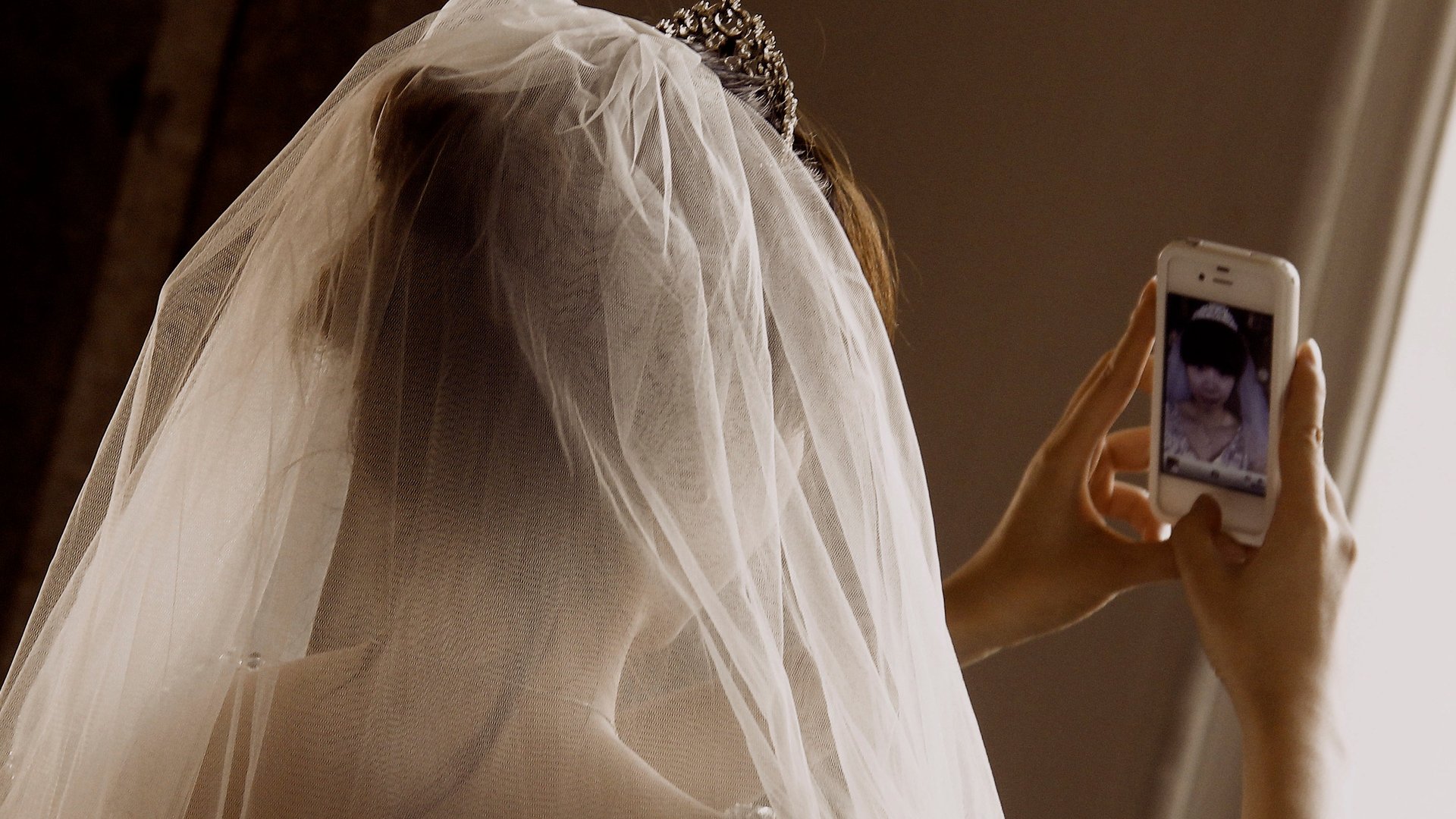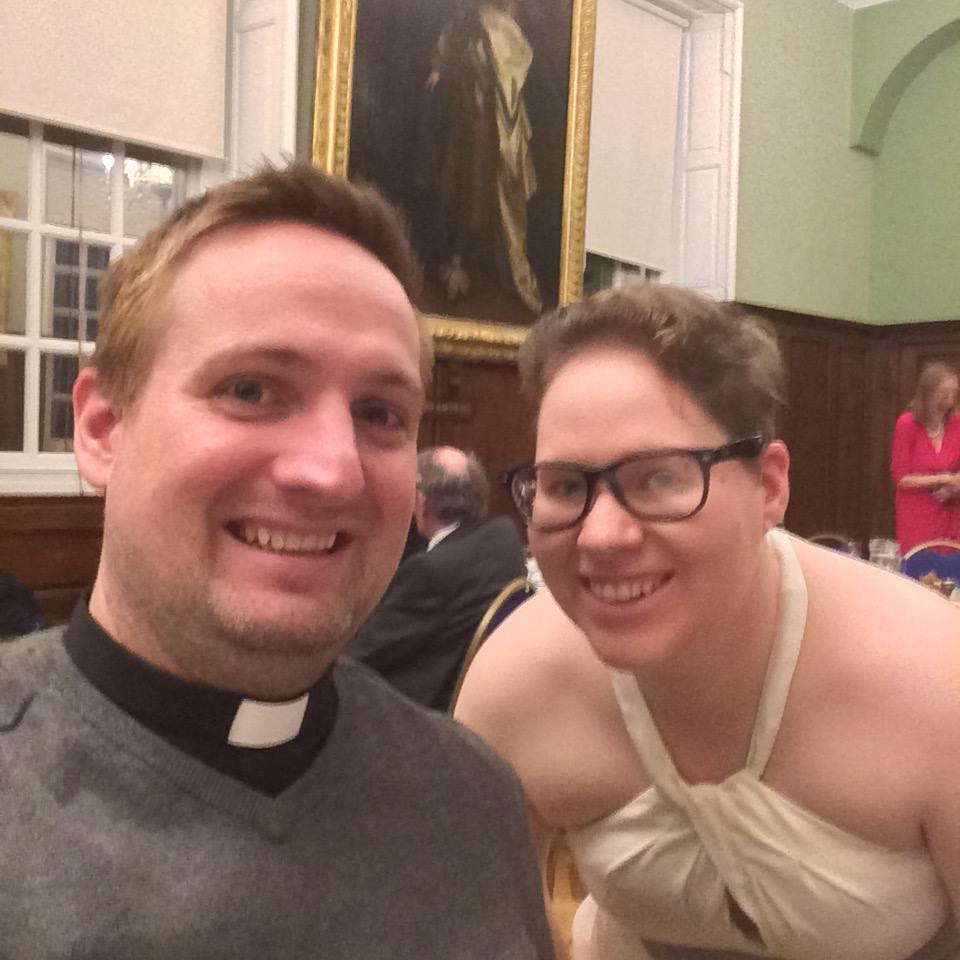There’s nothing wrong with texting at your own wedding
I married my partner, James, last January in a little town outside Oxford. We have plenty of wonderful professionally-taken photos to remember it by, featuring beautiful ancient buildings and the joyful faces of our friends and family. We also have a rather terrible photo that someone snapped of me leaning against a wall in the reception room, texting furiously.


I married my partner, James, last January in a little town outside Oxford. We have plenty of wonderful professionally-taken photos to remember it by, featuring beautiful ancient buildings and the joyful faces of our friends and family. We also have a rather terrible photo that someone snapped of me leaning against a wall in the reception room, texting furiously.
Culturally, it’s become trendy to point to such pictures as evidence of our collective addiction to technology. But while the picture may not be destined for a wedding album, I don’t regret that moment one bit.
Earlier in October, Eric Pickersgill’s photo project “Removed” became a viral sensation. Creating a sort of edited street photography, the artist documented people on their smartphones, and then edited their handheld devices out of the images. According to many people on the internet, this series offers critical commentary on how we’re distracted by our phones at pivotal life moments. One case in point: the first photo in the slideshow depicts a bride and groom staring at their empty hands.
To me, this seems less like a true societal critique and more like yet another attack on millennials and their technologically-savvy ways. Sure, we spend a lot time on our phones. But that doesn’t mean we’re actually less social, even though reports seem to think so. That’s not to mention the scorn we get for taking selfies or for dropping punctuation. I suppose at one point there was a hard split between online life and “real” life, but that’s simply not the way it is anymore. Whether older generations like it or not, our social media lives are extensions of our actual social lives. And, more importantly, social media is in many ways making our lives better.
My partner is British and I’m American. When we knew we were about to get engaged, we worried about how best to make the announcement to friends and family without offending either side of the Atlantic. Although we wished we could, it would have been impossible to tell groups in both England and New England in person. So we hopped on the Eurostar and got engaged in Brussels, followed by calls to friends and family via Skype. Then it was time to really make it official with a Facebook update. (It came a day later; the screenshot is in our wedding album.)
We also chose to be digitally connected on our wedding day, despite the unplugged weddings that are all the rage right now—right down to the hipster-styled signs scattered across Pinterest. “Be present!” the signs command. But for many of us, being present can include using our phones and social networks—and the people around the world that such devices connect us with seamlessly. Though most wedding advice said to leave our phones at home, my partner and I both carried ours. We’d announced our tiny elopement via Instagram three months prior, and I wasn’t going to let a stranger tell me I had to ignore a major part of my life simply for tradition’s sake. So the phones stayed on.

Then there’s that blurry photo of me from the reception. While critics might accuse me of not being present in the moment, I was in fact messaging my best friend from high school. Unable to make the transatlantic flight to our wedding, she remained with us for part of the day, showing her support via mobile phone. Meanwhile, of course I had to take a selfie with our officiant, an old friend from college who flew in from Montreal who’s an avid picture-taker and has a strong online presence. My sister recorded the wedding toasts on her phone and posted them to Flickr.
And when the amazing photographer asked for permission to share some photos on her blog, we of course said yes. It was another way to engage with our entire community, not just those who were physically close to us. I’m glad I got to message with loved ones who were far away on that day, just as I’m glad we could share our reception playlist on Spotify.
I understand that it’s nice to experience some events without a digital screen adding a degree of separation. But simply complaining about young people and their phones says a lot more about the person complaining than it does about an entire generation. As for my fellow millennials: Rather than feel ashamed of photographic evidence of us using our phones, we should own those moments. They show us being active and aware, truly interacting with our far-flung communities.